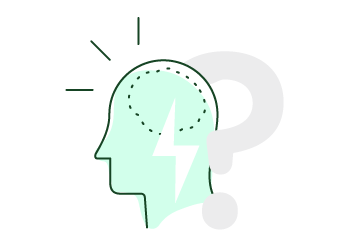Personal Productivity
Why You Get Stuck in the Status Quo
AUTHOR: Francisco Sáez
All of us, some more than others, are victims of the default effect. When we have a lot of options to choose from, among which there’s a predetermined one—a default choice—most of us just go with the standard option. In other words, we choose not to choose.
It is true that default options make our life easier since we avoid making a lot of decisions actively. Some decisions are so complex—how to choose a good retirement plan? or life insurance?—that we appreciate that there is a default option to give us shelter.
Renegotiating existing agreements (between friends, at work, with the telephone company, etc.) can bring great benefits, but let’s face it, it really is a hard and often unpleasant task.
Marketing and advertising experts and politicians are very familiar with this kind of psychological behavior as they make use of it in their campaigns to influence the decisions of their audience. The best-selling color of a car model is the one that appears on their TV ads. The best-selling running shoes are the ones on the cover of the catalog for each season. The most popular subscription plans on web applications are those inside a box saying “best option”. The financial rules that are applied to a marriage are usually the ones by default in the region where the marriage takes place.
But living peacefully in the comfort of not having to choose because someone has already made a reasonably good choice for us can have very important consequences under certain circumstances.
According to Rolf Dobelli, author of The Art of Thinking Clearly, the default effect comes into play even when there’s no default option. In such cases, we make our past the default option. That’s why it’s so hard to leave the status quo, the state of affairs, even when they aren’t as we would like them to be or when they could be much better.
Loss aversion is another psychological behavior that contributes to maintaining the status quo as we take the state of affairs as a benchmark and see every single change as a loss. Something completely absurd from a rational point of view, but that’s how we function.
We have a strong tendency to leave things as they are, even though it can be a big disadvantage. However, challenging the status quo can change the way we think and behave as human beings. It makes us evolve. So, be brave… and do not settle.




2 comments
Good insight, thank you! With respect to habits we face a mechanism, which makes it hard to change them. Habits are programmed in the subconscious and therefore are defended rigorously. However, the programming can be changed, a process which normally takes 30 to 40 days. Whenever you manage to stick to a change for a sufficiently long period, the changed habit will be programmed and subsequently will be defended by your subconscious as rigorously as it defended the original habit.
Good insight, thank you! With respect to habits we face a mechanism, which makes it hard to change them. Habits are programmed in the subconscious and therefore are defended rigorously. However, the programming can be changed, a process which normally takes 30 to 40 days. Whenever you manage to stick to a change for a sufficiently long period, the changed habit will be programmed and subsequently will be defended by your subconscious as rigorously as it defended the original habit.
Hi Günther,
Yes, habits are hard to change and even when they seem have changed, it's easy for them to re-emerge at any time.
Thanks for sharing!
Hi Günther,
Yes, habits are hard to change and even when they seem have changed, it's easy for them to re-emerge at any time.
Thanks for sharing!